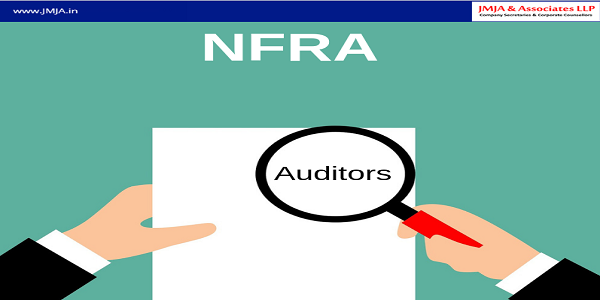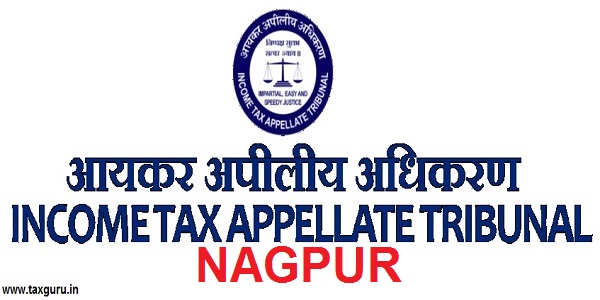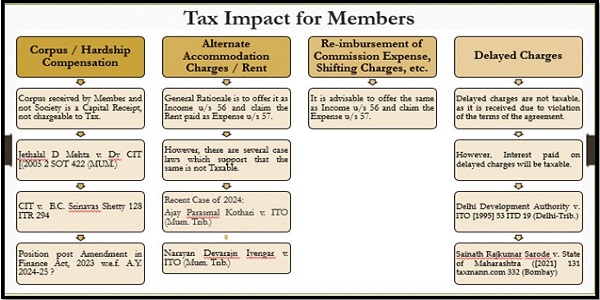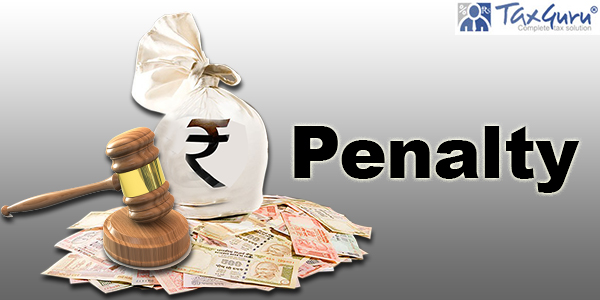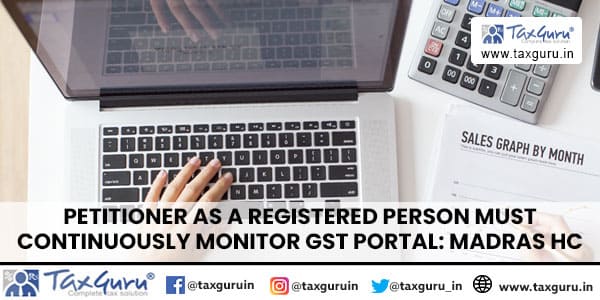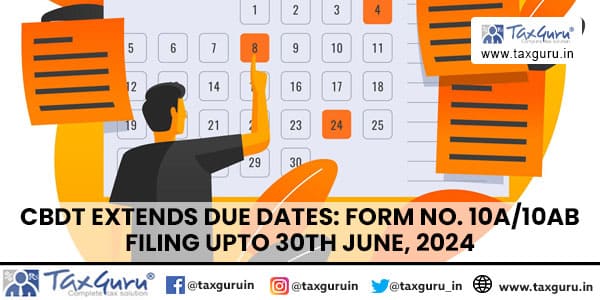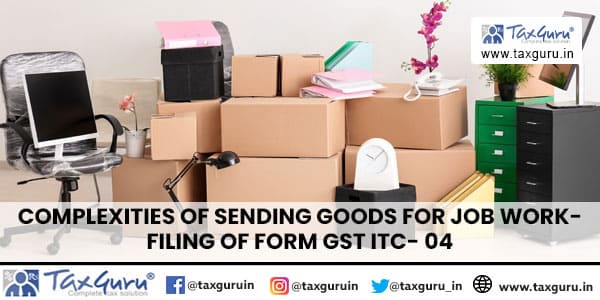Case Law Details
Brief of the Case
ITAT Ahmadabad held In the case of Adani Port & Special Economic Zone Ltd. vs. ACIT that two circumstances must exist to enable the Commissioner to exercise power of revision u/s 263, namely (i) the order is erroneous (ii) by virtue of being erroneous prejudice has been caused to the interests of the Revenue. In the light of the requirement of provisions of Section 263 and the various decisions of high courts, in the present case, it is seen that Section 263 has been invoked on 3 grounds. On these 3 issues, it is seen that during the course of assessment proceedings, A.O had raised query on all the aforesaid 3 issues and the same were also replied by the Assessee. Thus it is seen that on the aforesaid 3 grounds, the A.O had raised the query, the same were replied by the Assessee and it appears that the reply of the Assessee was found acceptable to the A.O because no addition on these aforesaid 3 issues were made by the A.O in the assessment order. Accordingly, revision u/s 263 is not allowed.
Facts of the Case
Assessee is a company stated to be engaged in the development and operation and maintenance of ports and Special Economic Zone at Mundhra. Assessee filed its return of income for A.Y. 2010-11 on 24.09.2010 declaring total income at Rs. 1,46,39,970/-. The case was selected for scrutiny and thereafter the assessment was framed under section 143(3) vide order dated 28.03.2013 and the total income was determined at Rs. 27,74,59,380/-. Subsequently on examination of the case record of assessment, CIT noticed some observations regarding less disallowance u/s 14A read with Rule 8D, allowing deduction on account of amortization value of lease hold land ignoring the provision of section 35D, Excess claim of depreciation on office equipments and wrong claim of deduction u/s 35D. He accordingly issued a notice dated 16.03.2015 calling upon the Assessee to show cause as to why appropriate order u/s. 263 be not passed and in response to which Assessee interalia objected to the initiation of proceedings u/s. 263 and submitted that the notice was without jurisdiction.
CIT after considering the submissions of Assessee agreed with the submission of Assessee only with respect to the disallowance made u/s. 14A but on the other 3 issues, the submissions of the Assessee were not found acceptable. He accordingly vide order dated 31st March, 2015, held the order passed by the A.O dated 28.03.2013 to be erroneous and prejudicial to the interest of Revenue as according to him the Assessee was allowed inadmissible deductions. He accordingly cancelled the order dated 28.03.2013 framed u/s. 143(3) of the Act and directed the A.O to make fresh assessment of the total income of the Assessee.
Contention of the Assessee
The ld counsel of the assessee submitted that in the present case, the pre requisite conditions specified u/s. 263 of the Act were not satisfied and therefore the proceedings lacks jurisdiction and are bad in law. He submitted that CIT can revise an order passed by the A.O only on the satisfaction of twin conditions namely (i) the order is erroneous and (ii) it is prejudicial to the interest of Revenue. He further submitted that the error envisaged to Section 263 is not one which depends on possibility or guesswork but it should have an actual error either of facts or of law and further the order of A.O cannot be considered as erroneous order prejudicial to the interest of Revenue unless the view taken by the A.O is unsustainable in law and for the aforesaid proposition he relied on the decision of Hon’ble Apex Court in the case of Malabar Industries Co. vs. CIT (2000) 243 ITR 83 (SC).
On the merits, on the issue with respect to amortization of lease hold land, claim of depreciation and deduction u/s. 35D, he submitted that during the course of assessment proceedings, A.O had raised specific queries on the aforesaid three issues and in response to the query raised by the A.O., Assessee had furnished the reply. He submitted that vide letter dated 21.03.2013 had submitted the justification with respect the claim of depreciation of lease hold land development along with other details. With respect to the claim of deduction made u/s. 35D, Assessee vide letter dated 08.01.2013 had filed the necessary details along with the chart showing details of claim made in each of the preceding year along with the order in which the initial claim was made. With respect to the claim of depreciation, Assessee vide letter dated 08.11.2012 had filed the chart showing the details of fixed assets acquired during the year along with the depreciation claimed thereon.
Further he submitted that after considering the submissions of Assessee and on being satisfied with the replies given by the Assessee no addition was made by the A.O. He therefore submitted that when the A.O has taken one view with which ld. CIT does not agree, the order of A.O cannot be treated as erroneous order pre-judicial to the interest of Revenue unless the view taken by the A.O is unsustainable in law. With respect to the amortization of lease hold land ld. A.R. further submitted that Assessee had not claimed the deduction u/s. 35D but had amortized the cost of lease hold lands over a period of 10 years and in support of which he also pointed to the copy of the computation of income.
He therefore submitted that CIT has wrongly assumed that Assessee has claimed deduction u/s. 35D on amortization of land. With respect to the claim of depreciation, ld A.R. pointed to the breakup of the addition to office equipments which is placed at page 31 & 32 of the paper book. He pointed out that similar addition to assets were made in earlier years and the claim of depreciation at 15% was allowed by the A.O in scrutiny assessment meaning thereby that it was accepted by the Revenue department that Assessee was right in claiming the depreciation at 15%. He therefore submitted that in the absence of any change in facts, a different view could not be taken by ld. CIT. With respect to the claim of deduction u/s. 35D, he submitted that the issue of Section 35D was examined in the 1st year when the expenses were incurred and after the examination of the claim, the deduction was allowed in the year of incurring of expenditure and subsequent years. He therefore submitted that Assessee cannot be denied the claim of deduction under 35D more so when the claim has been allowed after scrutiny assessments in the past and without disturbing earlier years deductions and for this proposition he relied on the decision of Hon’ble Gujarat High Court in the case of Gujarat Narmada Valley Corporation vs. D.C.I.T. (2014) 369 ITR 763 (Guj.).
He further submitted that where two views are possible and the A.O has taken one view on the basis of evidence produced with which the Commissioner does not agree, then in that case the order passed by A.O cannot be treated as erroneous and prejudicial to the interest of Revenue, unless the view taken by the A.O is unsustainable in law and for this proposition he relied on the decision of Hon’ble Apex Court of Max India cited in 295 ITR 282 (SC).
He further submitted that even otherwise the order of A.O cannot be considered to be pre-judicial to the interest of the Revenue because the entire income under the head “profits and gains of business and profession” is exempt u/s. 80IB and even assuming that if there are certain disallowances, the disallowances would result in increasing the income under that head which would correspondingly go the increase the quantum of deduction u/s. 80IB and in that sense also, the order of A.O cannot be considered to be prejudicial to the interest of Revenue. He therefore submitted that the order of ld. CIT deserves to be quashed both on merits and legally.
Contention of the Revenue
The ld counsel of the revenue supported the order of CIT and further submitted that when A.O has allowed the claim of the Assessee without any discussion, the order passed by the A.O was erroneous and prejudicial interest of Revenue. With respect to the claim of amortization of lease hold land that was allowed by A.O, he submitted that A.O had not examined the claim of the Assessee in the light of provisions of Section 35D(2) as the section does not provide for amortization of land and thus it was wrong application of law at the end of A.O.
With respect to claim of depreciation on office equipment at 15%,he submitted that the office equipment cannot be considered to be plant and machinery and therefore Assessee was not eligible to claim the depreciation at 15% and therefore the claim made by the Assessee was not as per law.
With respect to the claim of deduction u/s. 35D, he submitted that Assessee was not an industrial undertaking and therefore as envisaged in Section 35D of the Act as it had not started its business on or after 01,04,2009 and that the Section has been amended from that date and the amended Section therefore does not apply to the Assessee.
With respect to the ld counsel of the assessee contention that even if the disallowances were made the same would go to increase the profits eligible for deduction he submitted that this argument. cannot be upheld and for this he relied on the decision of Ahmedabad Tribunal in the case of DCIT vs. Rameshbhai Prajapati (2013) 29 Taxman.com 64 (Ahd Tribunal). He also placed reliance on the decisions in the case of CIT vs. Infosis Technologies Ltd. 17 Taxman.com 203 (Karnataka), CIT vs. Jawahar Bhattacharjee 24 Taxman.com 215 (Guwati), Malabar Industrial Company Ltd. vs. CIT 109 Taxman.com 109 Taxman.com66 (SC), CIT vs. Ahsok Logani 11 Taxman.com 208 (Del) and Gee Vee Enterprises vs. Additional CIT 99 ITR 375 (Del). He thus supported the order of CIT (A).
Held by ITAT
The reading of the provisions u/s 263 makes it very clear that the power of suo motu revision u/s 263(1) is in the nature of supervisory jurisdiction and the same can be exercised only if the circumstances specified therein exist. Two circumstances must exist to enable the Commissioner to exercise power of revision u/s 263, namely (i) the order is erroneous (ii) by virtue of being erroneous prejudice has been caused to the interests of the Revenue. Interpretation of Section 263 has been subject matter of consideration in various decisions including the decision in the case of Malabar Industrial Co. Ltd. vs. CIT (2000) 243 ITR 83 where the Hon’ble Apex Court while interpreting Section 263 at para 7 has observed as under:-
“There can be no doubt that the provision cannot be invoked to correct each and every type of mistake or error committed by the Assessing Officer, it is only when an order is erroneous that the section will be attracted. An incorrect assumption of facts or an incorrect application of law will satisfy the requirement of the order being erroneous. In the same category fall orders passed without applying the principles of natural justice or without application of mind.”
In the case of CIT vs. Gabriel India Ltd. (1999) 203 ITR 108, the Hon’ble High Court while interpreting Section 263 has held that an order passed by the Assessing Officer cannot be termed as erroneous unless it is not in accordance with law. It further held that section does not visualize the case of substitution of the judgment of the Commissioner for that of the Income Tax Officer and pass the order, unless the decision is held to be erroneous. It further held that Income Tax Officer having exercised the quasi judicial power vested in him in accordance with law and having arrived at a conclusion that conclusion cannot be termed to be erroneous simply because the Commissioner does not feel satisfied with the conclusion.
In the light of the requirement of provisions of Section 263 and the decisions cited hereinabove, in the present case, it is seen that Section 263 has been invoked on 3 grounds. On these 3 issues, it is seen that during the course of assessment proceedings, A.O had raised query on all the aforesaid 3 issues and the same were also replied by the Assessee. Thus it is seen that on the aforesaid 3 grounds, the A.O had raised the query, the same were replied by the Assessee and it appears that the reply of the Assessee was found acceptable to the A.O because no addition on these aforesaid 3 issues were made by the A.O in the assessment order.
Hon’ble Apex Court in the case of CIT vs. Max India Ltd. (2007) 295 ITR 282 (SC) has held that where two views are possible and ITO has taken one view with which CIT does not agree, order of the A.O cannot be considered as erroneous order prejudicial to the interest of Revenue unless the view taken by the A.O is unsustainable in law. We further find that Hon’ble Bombay High Court in the case of Idea Cellular Ltd. vs. DCIT reported in (2008) 301 ITR 407 (Bom) has held that if a query is raised during the assessment proceedings and responded to by the Assessee, the mere fact that it is not dealt with in the assessment order would not lead to conclusion that no mind has been applied to it.
On the merits on the issue of amortization of cost of lease hold land, we find on perusing the computation of total income that the claim of Assessee of amortized value of lease hold land development was not u/s. 35D whereas CIT in the order has held that the claim of Assessee was u/s. 35D and therefore in such a situation, A.O’s order on that issue cannot be considered to be erroneous more so because there was no such claim u/s. 35D by Assessee.
As far as the claim of depreciation on office equipments @ 15% is concerned, it is Assessee’s submission that the claim of depreciation at 15% on the office equipment which comprises of similar items as are in the present year, has been allowed by the A.O in earlier years in the assessment order passed u/s. 143(3) and those orders have attained finality.
As far as the claim of deduction u/s. 35D is concerned it is not the case of the Revenue that the expenses have been incurred in the year under consideration but on the contrary it is assessee’s submission that the same have been incurred in earlier years and the deduction u/s. 35D has also been allowed in earlier years. It is also not a case of the Revenue that on the issue of deduction u/s 35D, deduction for earlier years has been withdrawn by Revenue. In such a situation, without disturbing the earlier years, it cannot be said that the claim of deduction u/s. 35D was not allowable to the Assessee. The aforesaid submissions have also not been controverted by Revenue. Further, before us Revenue has not brought any material on record to demonstrate that the view taken by the A.O was impermissible view and was contrary to law or was upon erroneous application of legal principles initiating the exercising of revisionary powers u/s. 263. Further the case laws are relied upon by the Revenue are distinguishable on facts and therefore cannot be applied to the facts of the present case.
Accordingly, appeal of the assessee allowed.






